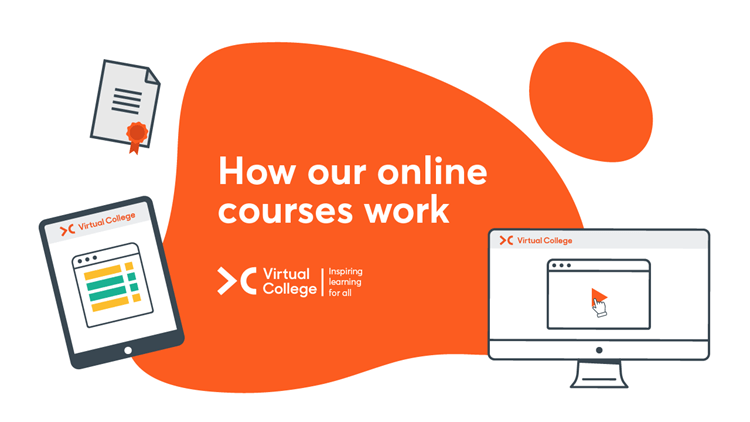Statutory & Mandatory Training: Safeguarding Children Level 1
This online course looks at children’s rights in the context of safeguarding, key legislation, how to recognise the different types of child maltreatment and signs of abuse, and what to do if you need to raise a concern.
Course Overview
Format
- Introductory Course
- Up to 45 Minutes
- Online Study
- Self-Printed Certificate
Accreditation
- 1 CPD Hour
- CPD Certified
Course description
Child abuse, in its many forms, has a significant impact on a child’s wellbeing and development. This module looks at children’s rights in the context of safeguarding, key legislation, how to recognise the different types of child maltreatment and signs of abuse, and what to do if you need to raise a concern.
By the end, you'll feel confident in identifying safeguarding concerns and taking appropriate action to protect children and young people.
Statutory & Mandatory Training: Safeguarding Children Level 1 Features
Our new Safeguarding Children Level 1 course has been designed to work on all devices including mobiles, laptops, tablets and desktops giving you the flexibility to complete the training at a time and in a location suitable for you.
With healthcare staff often expected to complete training on an annual basis there will be topics you will be more familiar with than others. Our self assessment tool, which is at the start of each course, will allow you to test your knowledge to see if you would like to complete the training or progress straight to the end of course test.
At the end of this safeguarding children training, you will need to complete a test that consists of multiple choice questions. Learners are required to achieve an 80% pass mark, and - if necessary - may attempt the test six times at no extra cost. If learners do not achieve the pass mark, further attempts may be given by contacting our support team.
The online safeguarding children level 1 training is fully interactive and is packed with various multimedia forms including video, animation and custom graphics to give you the best learning experience.
Each element of the training is WCAG 2.2 accessible and includes scenarios, contextualised activities, reflective activities, knowledge checks, bite sized lessons and so much more.
Accreditation
The content of this training course has been independently certified as conforming to universally accepted Continuous Professional Development (CPD) guidelines.
Duration
This course will take up to 45 minutes to complete, depending on how quickly learners can study and absorb the material. Learners do not have to complete all the training in one session as progress is recorded throughout.
Entry requirements
There are no specific entry requirements for this course.
Framework
Our Statutory & Mandatory Training: Safeguarding Children Level 1 online training course is mapped to the Skills for Health Core Skills Training Framework.
Here we explain the framework and their importance.
Skills for Health Core Skills Training Framework:
The Core Skills Training Framework sets out minimum learning outcomes, frequency of refresher training and is linked to relevant legislation or expert guidance.
It can be used by any healthcare employer in the UK including NHS, independent and voluntary providers.
We have mapped our eLearning courses to the learning objectives within the Core Skills Training Framework, to give organisations the confidence that they can use the eLearning as a foundation for their wider training programmes.
You will learn
- Identify possible signs of sexual, physical, or emotional abuse or neglect using a person-centred approach
- Identify adults who have caring responsibilities for other adults or children experiencing abuse, harm or neglect and make appropriate referrals
- Demonstrate a clear understanding, as appropriate to your role, of forensic procedures in adult safeguarding and knowing how to relate these to practice in order to meet clinical and legal requirements as required
- Describe how to carry out a risk and/or harm assessment
- Communicate effectively with adults at risk, in particular those with mental capacity issues, learning disability or communication needs
- Contribute to/formulate and communicate effective care plans for adults who have been or may be subjected to/at risk of abuse, harm, or neglect, and make considered judgements about how to act to safeguard them
- Demonstrate an understanding of the issues surrounding suspicion of adult abuse, harm and neglect and know how to effectively manage uncertainty and risk
- Appropriately contribute to inter-agency assessments by gathering and sharing information
- Document concerns in a manner that is appropriate for adult safeguarding protection and legal processes
- Explain how to undertake documented reviews of your own (and/or team) adult safeguarding, as appropriate to your role (such as through audit, case discussion, peer review, and supervision and as a component of refresher training)
- Explain how to deliver and receive supervision within effective models of supervision and/or peer review and be able to recognise the potential personal impact of adult safeguarding on professionals
- Advise others on appropriate information sharing
- Appropriately contribute to and apply lessons learnt to improve practice from serious case reviews/case management reviews/significant case reviews, and domestic homicide review processes
Who is it for?
Roles including:
- Staff working in a healthcare environment who come into contact with children
- Those working with vulnerable children
- Anyone who works with vulnerable children such as care workers, befrienders, social workers, teachers and nurses
- It may also be of interest to parents, family members and those who live with children

















